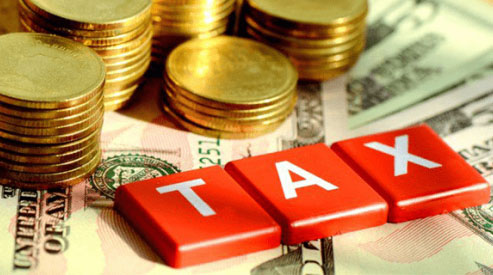Sugar tax pockets US$8m for cancer treatment
The Ministry of Finance, Economic Development and Investment Promotion, has so far raised US$8 million from the “unpopular” sugar tax, according to reports.
This was revealed by the Health and Child Care Minister, Dr Douglas Mombeshora, during the Health Development Partners Coordination Forum meeting last week Friday, as he confirmed the money will be used to fund cancer treatment.
“There is an issue of sugar tax, which I should mention now because yesterday (last Thursday) I had also challenged the Minister of Finance in terms of how much the sugar tax is because from the beginning of the year, we have not yet utilised a cent and yet sugar is utilised every day,” he said last week Friday.
“I am glad to say that yesterday (last Thursday), they said there is US$8 million now for us to utilise.
“But this is going to target procurement of cancer treatment machines and cancer treatment drugs.”
The sugar tax, which has piled costs on beverages manufacturers, came into effect this year in line with proposals made in the 2024 National Budget statement presented last November by the Finance Minister. At the time, the Treasury wanted to levy US$0,02 on every gramme of sugar contained in beverages.
However, the tax was revised to US$0,001 in February following an outcry by industry players.
According to www.onlinelibrary.wiley.com, Medical linear accelerators are the most expensive commonly used equipment in Radiation Oncology. In 2023, new linear accelerator equipment capable of Volumetric Modulated Arc Therapy (VMAT) and Image Guided Radiotherapy (IGRT) can have costs upwards of US$4 million.
Economist, Gladys Shumbambiri-Mutsopotsi, noted that while the sugar tax has been controversial, its successful collection of US$8 million demonstrates the potential of targeted taxation to address public health issues.
“This revenue, if managed properly, can significantly bolster our healthcare system, particularly in cancer treatment, which has been underfunded for years,” she said.
The sugar tax’s initial implementation faced significant resistance from industry players, leading to its revision in February. Despite the reduction from the originally proposed US$0,02 to US$0,001 per gramme of sugar, the tax has still managed to generate substantial revenue.
This development underscores the effectiveness of even modest tax rates when applied consistently and highlights the potential for similar fiscal policies to support other critical areas of public health.
Shumbambiri-Mutsopotsi emphasised the importance of utilising the funds effectively to maximise their impact on public health.
Dr Prosper Chitambara, another respected economist, echoed similar sentiments but emphasised the need for transparency and efficient allocation of the funds.
“It’s crucial that the Government ensures this money is used specifically for its intended purpose. Mismanagement of these funds would not only be a setback for healthcare but also undermine public trust in such tax initiatives,” Chitambara stated.
He also highlighted the broader economic implications of effective healthcare funding, noting that improved public health outcomes could lead to increased productivity and economic growth.
Dr Emmanuel Dzuwa, a medical doctor, highlighted the positive impact this funding could have on cancer treatment.
“The procurement of new cancer treatment machines and drugs is a critical step forward. It will improve treatment outcomes and potentially save many lives. However, ongoing investment and maintenance are essential to sustain these improvements,” he stated.
Dr Dzuwa also pointed out the need for comprehensive training for medical staff to operate new equipment effectively and the importance of continued research and development in cancer treatment.
In his remarks, Dr Mombeshora acknowledged the concerns raised by the industry but stressed the importance of the tax in addressing the growing burden of non-communicable diseases, such as cancer.
“We understand the challenges faced by beverage manufacturers, but the health of our nation must come first.
The sugar tax is a necessary measure to combat the rising incidence of lifestyle-related illnesses,” he said.
Additionally, the airtime levy which was introduced in 2014 when Treasury levied five percent excise duty on airtime for voice and data has also been helpful to the health ministry according to the permanent secretary.
The Health Ministry Permanent Secretary, Dr Aspect Maunganidze, said about US$2 million is being realised every month from the airtime levy also known as the health levy.
“The average amount of money which goes there is plus or minus US$2 million per month from the taxes we get every time we tax and it is helping the ministry is so many ways,” he said.
As the Government moves forward with the allocation of the US$8 million for cancer treatment, all eyes will be on the implementation process.
Stakeholders from various sectors said they will be keen to see how effectively the funds are utilised and whether the intended benefits materialise.
The success of this initiative could pave the way for future health-focused taxes and reinforce the Government’s commitment to improving the nation’s health.-ebusinessweekly









